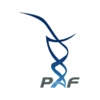Relatório final – May 2024
Ken Maclean, PhD, Universidade do Colorado em Denver
“Tratamento químico da chaperona para restaurar a atividade enzimática nas mutações dobráveis da propionil-Co-A carboxilase: Rumo a uma estratégia terapêutica personalizada na acidemia propiônica (PA)”
Acidemia propiônico (PA) (MIM 606054), is a serious life-threatening disease that typically occurs in the early period of birth. Individuals with PA exhibit protein intolerance, vômito, failure to thrive, letargia, and profound metabolic acidosis
sintomas. Esta doença pode resultar em retardo mental e sem tratamento, a morte pode ocorrer rapidamente, devido a, infecção, Problemas cardíacos, ou danos cerebrais. Há uma necessidade urgente de melhores tratamentos para AP.
PA é causada por mutação em uma enzima chamada propionil-CoA carboxilase (PCC) Esta enzima consiste em duas subunidades não idênticas, a e b, codificado por dois genes nucleares diferentes, chamados PCCA e PCCB.
Observamos que um número, mas nem todos, of patient mutations in the PCCB gene generate minimal PCC detectable activity due to the effect of that mutation on the ability of that protein to assemble and fold itself correctly. If the protein does not get to its correct shape, it cannot work properly and thus causes PA. We proposed to use a number of strategies to see if we could restore PCC activity by helping that protein to overcome its mutation and fold correctly. The idea was that if we restore the proteins shape, it will get its function back and the PCC activity can be restored. To do this, we treated bacterial cells expressing the mutant PCC proteins with a range of different chemicals called “Chaperones”. These chemicals have the ability to help some mutant proteins fold into the correct shape and thus make a “broken” protein work again.
In this project we screened 32 different candidate chemical chaperones at a range of concentrations and were able to identify 4 candidates that were capable of at least partially rescuing PCC enzyme activity in our bacteria different PCCB folding mutant proteins.
Two of these chemicals were able to fix the mutant proteins to the point that their activity was essentially normal. in our bacterial system. We then tested these chemicals in PA patient derived skin cells grown in our lab, that carry the R165W mutation in PCC. Without treatment, these cells do not show any PCC activity. Ambos os produtos químicos foram capazes de resgatar significativamente a função da proteína mutante R165W PCC a tal ponto que ela tinha entre 50 to 60% da atividade observada nas células normais da pele. Se conseguíssemos restaurar este nível de atividade do PCC em pacientes, é altamente provável que a maioria dos problemas clínicos da PA seriam evitados. Subsequent work in our lab found that this effect can also be achieved by inducing natural chaperone proteins in the skin cells and that the accumulation of badly folded PCC protein hurts the cell and is likely to be contributing to some of the clinical problems in PCC.
Coletivamente, nosso trabalho abre uma nova maneira de olhar para algumas formas específicas de AP e indica uma nova linha possível de terapia para esta condição negligenciada. Este trabalho não teria sido possível sem o apoio da Propionic Acidemia Foundation, e agradecemos sinceramente a todos que contribuíram para este fundo.

